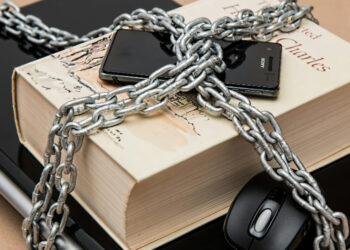Adult webmasters and those whose sites could hardly be called pornographic but contain mature subject matter have long known that PayPal can and does arbitrarily freeze accounts, often providing next to no information about why. But when Rich Kyanka’s PayPal account was flagged and frozen, it came as a shock.
Kyanka is the owner of popular mainstream humor site SomethingAwful.com, which allows visitors to submit links and comments concerning any number of truly awful online web occurrences. After becoming aware of the devastation caused by Hurricane Katrina, Kyanka decided to do what he could to raise money in order to help those affected. Within nine hours of announcing his intentions, he had $30,000 in his PayPal account and ready to go to the Red Cross. Alas, he quickly learned that his account had been moved to “limited” status due to what PayPal labeled “suspicious behavior.”
Because the government, which ultimately directs PayPal’s behavior in matters concerning multiple small transfers of funds, considers such behavior to be an identifier for money launderers and other criminals, Kyanka had to prove that he was not involved in any illegal dealings. Toward that end, Kyanka provided copies of his driver’s license, his Social Security card, and financial records – all without results. His site no longer contains updates about the situation, so the funds have presumably been released, but Kyanka, along with unknown numbers of other webmasters, have learned a hard lesson: the PayPal, due in part to governmental banking, anti-crime, and anti-terrorism laws, can and will freeze accounts without notice and without investigation.
The origins of PayPal are far from the current, Federal Reserve regulated reality. Founders and Soviet history enthusiasts, Peter Thiel and Max Levchin envisioned a method by which web denizens could freely transfer funds without governmental intervention. When the American banking industry became aware of PayPal’s operations and lobbied the government to step in and regulate, changes began to be made. Although unregulated by the FDIC, which focuses on banking institutions, individual states, as well as the Federal Reserve, the USA PATRIOT Act, anti-money laundering statues, and anti-fraud laws, all contribute to the current situation within PayPal. Fearful of possible Department of Justice prosecution, the company takes firm steps to suspend any account that shows signs of possibly illegal activity. Ironically in Kyanka’s case, Louisiana was a firm supporter of the very laws that now make it so difficult for webmasters to raise and donate funds to the Hurricane Katrina recovery effort. In February 2002, the state’s attorney general ordered PayPal to cease and desist operations within Louisiana until it had obtained a state specific money transfer license, which would require the company to collect information useful in fraud and money laundering prosecution. California, Illinois, New York, and Oregon states soon followed suit.
The good news is that small transfers rarely catch the attention of PayPal’s governmental paranoia, which means that most people can sign up for an account using only a name, email address, and credit card number. Those webmasters expecting to see large amounts of money pass through their account should be prepared to prove that it’s for legitimate purposes, however.












